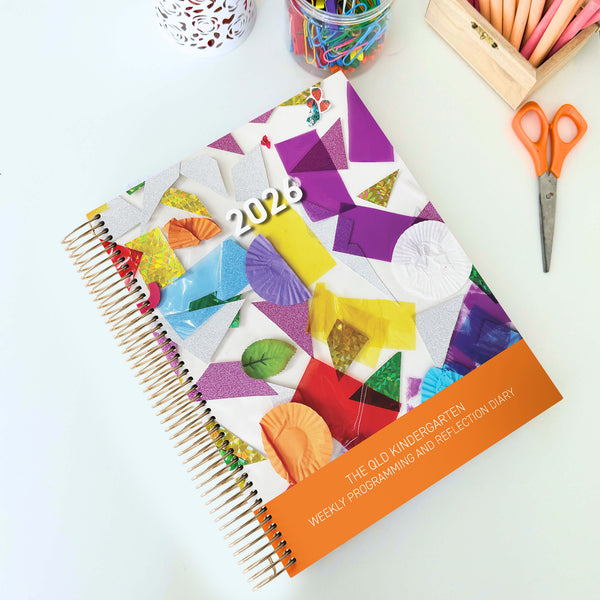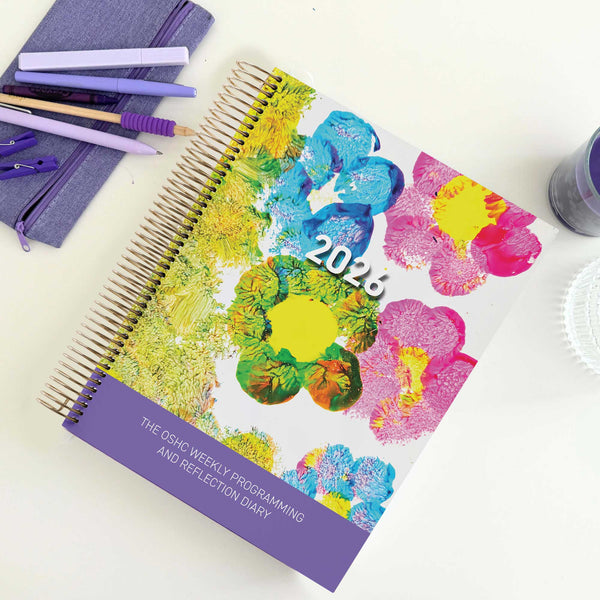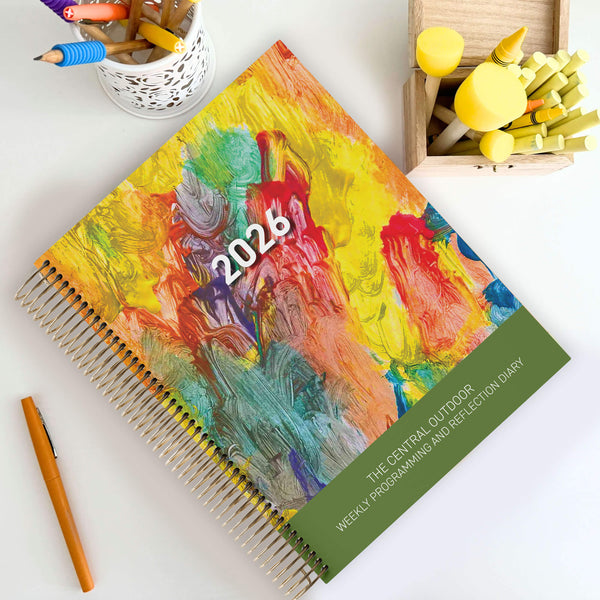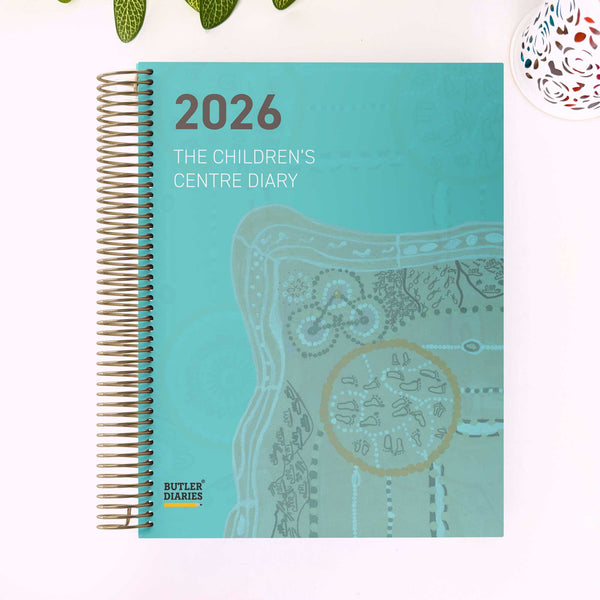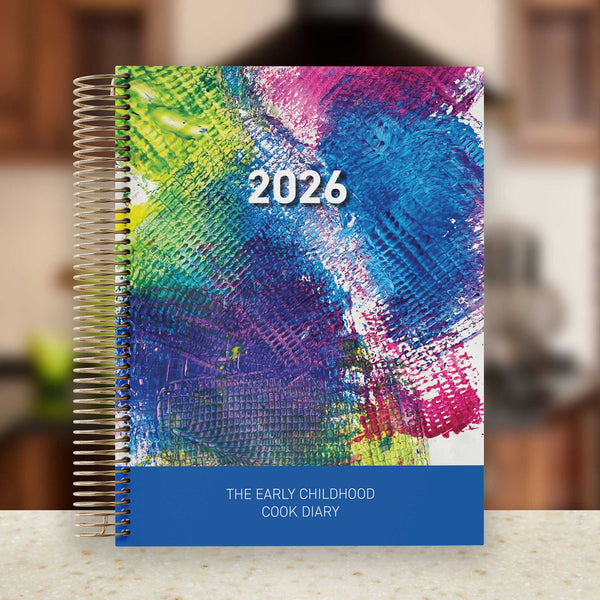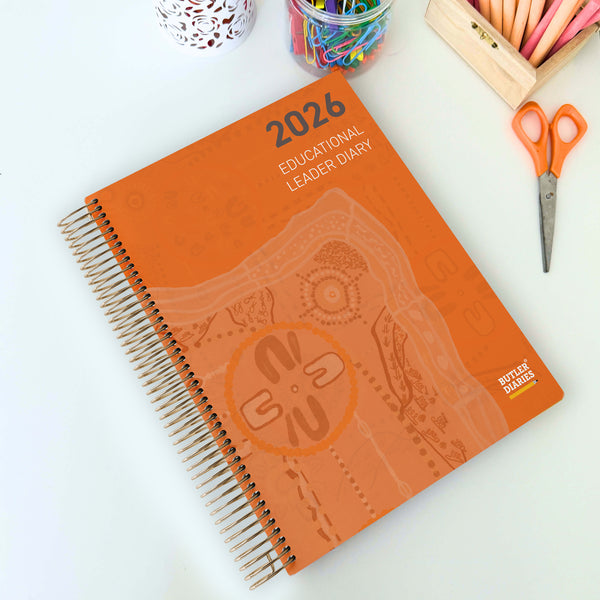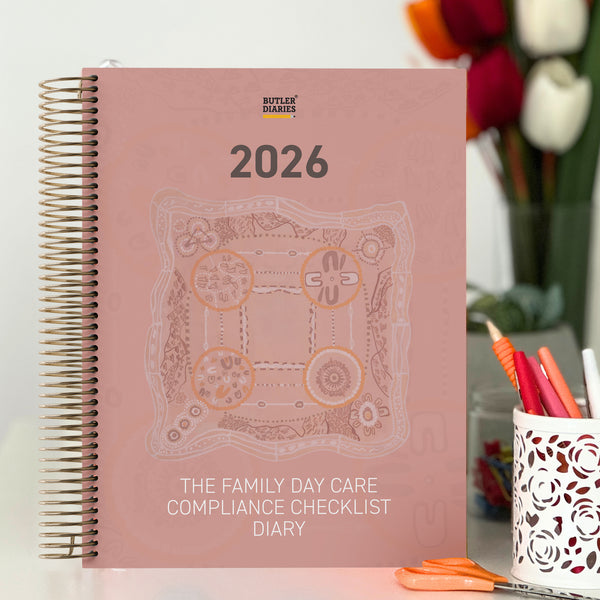The Essential Role of a Diary in Early Childhood Education and Care
In Early Childhood Education and Care (ECEC), maintaining a structured, organised, and reflective practice is crucial. Diaries in Childcare play an indispensable role in achieving this, serving as more than just a tool for keeping track of dates and events. They are the backbone of effective planning, assessment, and communication within educational settings. Here, we delve into the multifaceted purposes of a diary in ECEC and how it can transform your professional practice.
Daily Schedule and Planning
A well-structured diary is essential for managing the daily flow of activities. It allows educators to plan their day, ensuring that activities are balanced, child-centred and show the cycle of planning. This includes:
- Daily Plans: Outlining the day’s activities, from group sessions to individual learning experiences.
- Routine Management: Keeping track of essential routines such as meal times, nap times, and outdoor play and reflecting on their success.
With a reliable diary, educators can anticipate and prepare for the day’s events, creating a seamless experience for both staff and children.
Observations and Assessments
Documenting observations and assessments is a critical component of ECEC. Diaries provide a dedicated space for:
- Developmental Records: Tracking children’s milestones and learning progress.
- Reflective Practice: Analysing and reflecting on observations to enhance educational strategies.
By systematically recording these details, educators can tailor their teaching methods to meet the individual needs of each child, fostering a supportive and responsive learning environment. Capturing these observations in a diary ensures key details are recorded while its happening and not forgotten later when in front of a computer or ipad.

Compliance and Regulations
Navigating the regulatory landscape in ECEC can be challenging. Diaries help streamline this process by:
- Regulatory Checklists: Ensuring that all regulatory requirements are met and documented.
- Assessment Preparation: Keeping all necessary documentation in one place for assessments and ratings.
This not only aids in maintaining compliance but also demonstrates a commitment and consistent approach to high standards of care and education.
Communication
Effective communication with parents, guardians, and colleagues is fundamental to ECEC. Diaries facilitate this by:
- Parent-Teacher Communication: Logging interactions and sharing insights about children’s progress. Diaries provide the opportunity for equal opportunity, allowing everyone to participate.
- Staff Collaboration: Recording notes from meetings and discussions with other educators.
Such comprehensive documentation helps build strong relationships and fosters a collaborative approach to child development.
Professional Development
Continuous professional development is vital for educators. Diaries support this by:
- Tracking Training: Keeping a record of professional development activities, workshops, and seminars.
- Reflection: Providing a space for reflecting on new learnings and how they can be applied in practice.
This ensures that educators remain informed and engaged with the latest educational practices and standards.

Administrative Tasks
The administrative aspects of ECEC are numerous and varied. Diaries help manage these tasks efficiently by:
- Attendance Records: Logging daily attendance and tracking patterns.
- Health and Safety: Documenting incidents, health checks, and safety drills.
By maintaining thorough records, educators can ensure a well-organised and safe environment for children.
So Diaries or Digital? It can be Both.
Check out this example of a service meeting all needs with a digital and diary system. You can also reflect on whether digital, paper or a mix of the two is best for your service with this article.
Why Choose Butler Diaries?
At Butler Diaries, we understand the unique needs of ECEC professionals. Our diaries are designed specifically for this sector, offering tailored solutions that cater to the demands of educators and directors. Our products are proven to assist in assessment and ratings, helping you stay organised and compliant.
Discover how our range of diaries can support your practice. Visit Butler Diaries and explore our comprehensive collection, designed to simplify and enhance your professional journey.
By integrating a diary into your daily routine, you can elevate the quality of care and education you provide, ensuring every child has the best start in their learning journey.
Check out diaries for:













